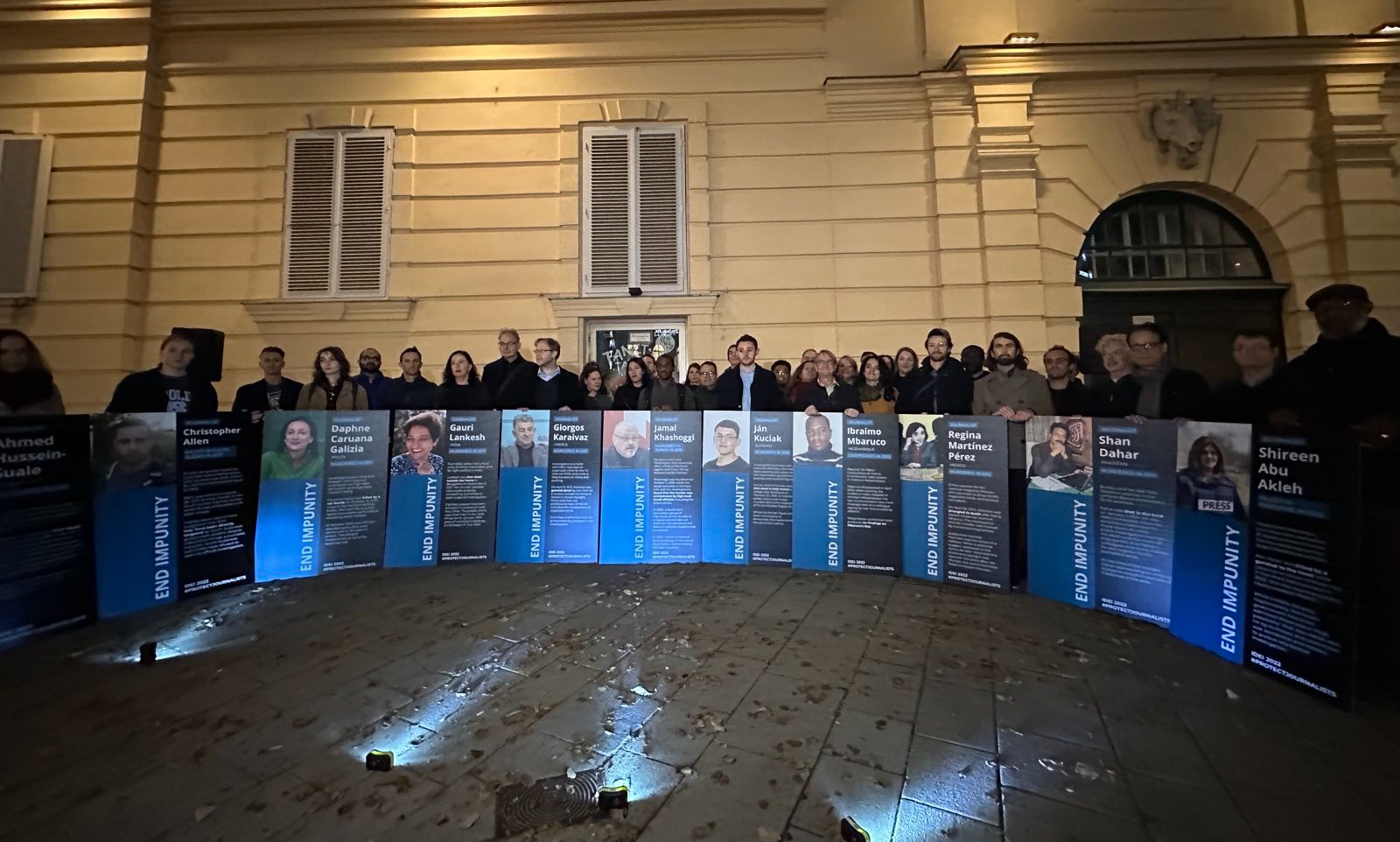The members of the International Press Institute (IPI), meeting at their 72nd annual General Assembly during the IPI World Congress on May 25, 2023 in Vienna, Austria, adopted by unanimous vote a resolution calling on states to implement the Vienna Call to Action – a set of concrete, actionable recommendations developed by civil society to improve journalists’ safety and tackle impunity.
A decade ago, and thanks to a coordinated push by the press freedom community including IPI, U.N. actors and member states adopted the U.N. Plan of Action on the Safety of Journalists and the Issue of Impunity, an agreement to develop “sustained, coordinated framework to address the threats facing journalists.”
Yet in the decade since the U.N. Plan was adopted, attacks against the press have spiraled amid rampant impunity for these crimes. More than 900 journalists and media workers have been killed over this period – and globally, in at least nine out of ten cases, the killers of journalists go unpunished, according to UNESCO estimates.
In 2022, as many as 70 journalists and media workers were killed worldwide – 14 in Mexico alone, which remains the world’s most dangerous country for the press. The deadliest countries for the press also include Ukraine, the Philippines, Pakistan, and Haiti. But even journalists in more established democracies are not safe from violence, as recent murders in Malta, Slovakia, Greece, and the United States have shown.
A year ago this May, veteran Al Jazeera journalist and IPI World Press Freedom Hero Shireen Abu Akleh was killed by Israeli forces while reporting in the West Bank. To date, there has been no accountability for this egregious crime. While initially denying responsibility, the Israeli government admitted that there was a “high possibility” that Abu Akleh was hit by its forces and recently apologized for Abu Akleh’s death. However, it claims this was accidental and has refused to pursue any further investigation.
In October 2018, prominent Saudi journalist and Washington Post columnist Jamal Khashoggi was murdered inside the Saudi consulate in Istanbul. U.N. and U.S. investigations found that the murder was orchestrated by high-level Saudi officials, including the crown prince. In 2020, a Saudi court convicted a group of individuals for this murder in a closed trial that did not meet fair trial standards and failed to hold the masterminds to account. In 2022, Turkey transferred its proceedings in the case to Saudi Arabia, further closing the door to justice.
These are just two among hundreds of journalists across the globe whose killers enjoy full or partial impunity. Other cases include Daphne Caruana Galizia, Malta’s leading investigative journalist, murdered in a car bombing in 2017; Regina Martinez Perez, a respected Mexican crime reporter strangled to death in her home in 2012; Shan Dahar, a Pakistani journalist shot in the back and killed in 2014 after reporting on the unauthorized sale of medicines; Ahmed Hussein-Suale, an investigative journalist killed in Ghana in 2019 after helping to reveal corruption in African football; and Slavko Ćuruvija, prominent Serbian investigative journalist who was gunned down outside his apartment in Belgrade in 1999.
These killings have put a spotlight on the alarming failure of both domestic states and the international community to uphold their obligations under international law and other agreements to ensure that crimes against journalists are fully investigated and prosecuted.
In November 2022, U.N. member states convened in Vienna for a global conference to mark the 10-year anniversary of the U.N. Plan of Action. On this occasion, IPI joined with a coalition of press freedom organizations to issue the Vienna Call to Action which puts forward concrete, actionable recommendations for improving states’ implementation of the UN Plan.
At the 2023 IPI World Congress in Vienna, the IPI global network urges states around the world to implement the Vienna Call to Action, which sets out a clear roadmap for combatting attacks against journalists and ending impunity. These include:
- addressing gender-based attacks against journalists;
- strengthening support for monitoring attacks by independent civil society groups and researchers;
- bolstering national safety mechanisms; and
- tackling digital threats to journalists.



